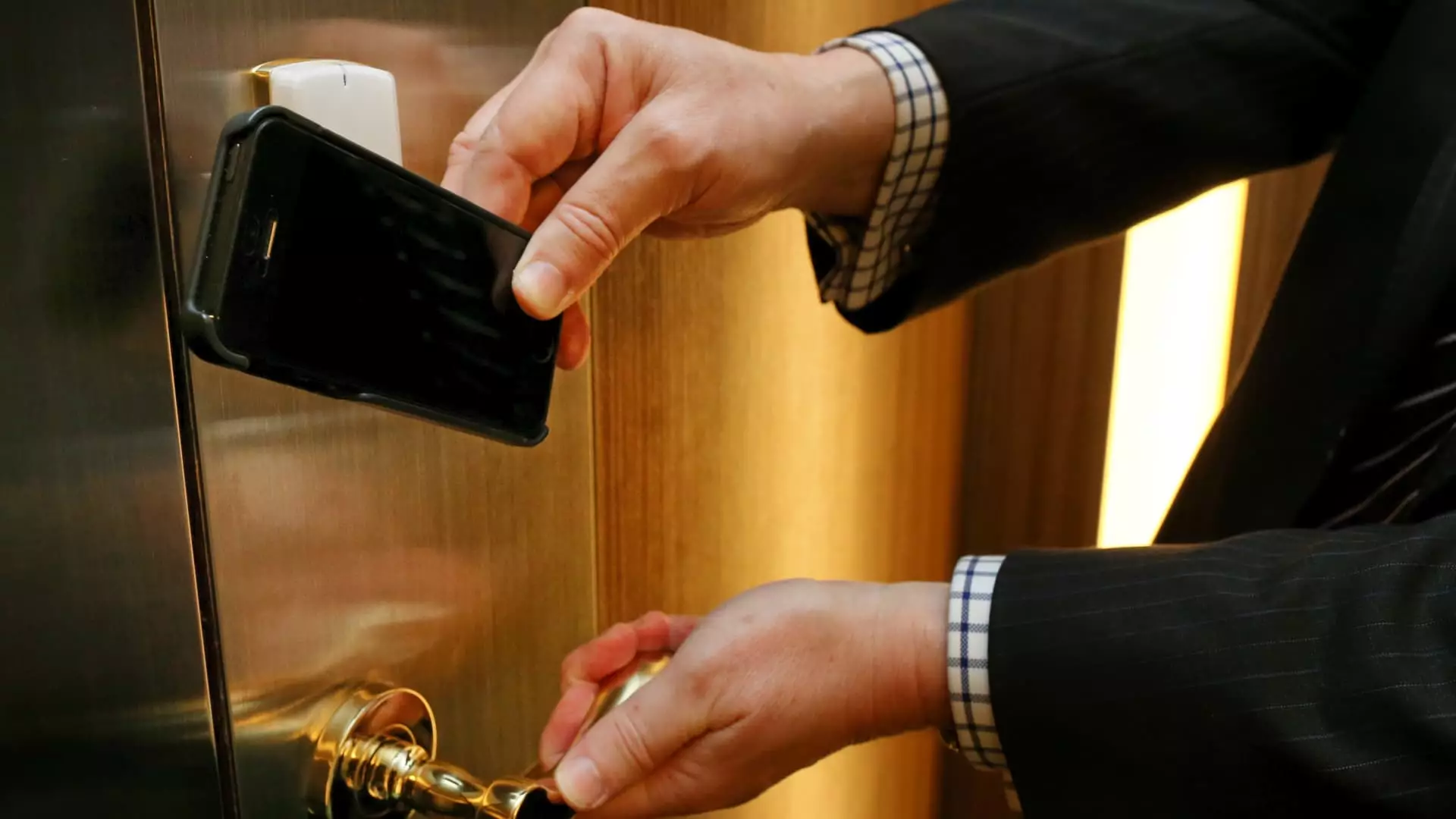In recent years, many hotel chains have been racing to replace the traditional plastic room key with digital options. The COVID-19 pandemic played a significant role in accelerating touchless trends, leading to a shift away from physical key cards. Security concerns surrounding hotel key technology have also prompted the industry to explore more secure and convenient alternatives.
Major hotel chains in the U.S. have been at the forefront of embracing digital key technology for years. Google Wallet and Apple Wallet have joined the race by offering hotels the ability to save guests’ room keys to their smartphones, allowing them to access their rooms with a simple tap. Hilton Hotels, for example, has its Honors app that enables guests to check-in and use their room key through their smartphones. The Harpeth Hotel in Tennessee, a Hilton property, allows guests to check-in digitally and store their keys in their Google or Apple wallet apps. Despite these advancements, some guests still prefer traditional plastic key cards.
The Transition to Digital Room Locks
According to industry experts, digital room locks represent the next wave in hotel door technology, signaling a potential end to traditional hotel room keys. However, security experts caution that even newer lock methods are not foolproof and can introduce new threat vectors. Lee Clark, a cybersecurity expert, emphasizes the need for security controls such as multifactor authentication to mitigate these risks. Additionally, the transition to digital and keyless lock systems comes with significant costs in equipment, installation, maintenance, and security.
Despite the push towards digital keys, data from J.D. Power’s research indicates that only a small percentage of hotel guests actually use digital keys during their stay. Many guests who have downloaded the hotel’s app opt to use the traditional plastic key card instead. Hotel chains are also facing challenges in the installation of locks capable of digital entry, as franchise owners are required to update their door locks to meet brand standards.
Despite slow adoption rates, guests using digital keys report feeling safer compared to those using plastic key cards. Chad Spensky, CEO of Allthenticate, points out that digital key cards offer superior user experiences and convenience. While the security of digital keys is not significantly better than plastic cards, the convenience factor plays a crucial role in their adoption. Digital key technology allows for quick course correction in case of vulnerabilities and enables instant over-the-air patches.
The Role of Human Nature
Mehmet Erdem, a professor at the University of Las Vegas, highlights that no system is foolproof, and people should not solely rely on digital entry for security. While RFID technology is improving and making plastic keys more versatile, some individuals will always prefer the physical plastic key. The advantage of digital keys lies in the fact that people are less likely to forget their phones compared to their wallets or ID cards.
The future of hotel key cards and digital options is evolving rapidly. While the transition to digital keys presents significant benefits in terms of security and convenience, there are still challenges in widespread adoption among guests. It is essential for hotel chains to strike a balance between technological innovation and guest preferences to ensure a seamless and secure guest experience. As the industry continues to adapt to changing trends, the debate between traditional plastic key cards and digital options will likely persist, catering to a diverse range of guest preferences and needs.


Leave a Reply